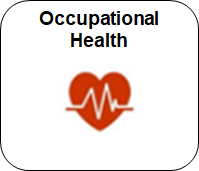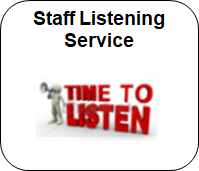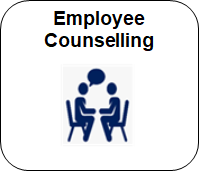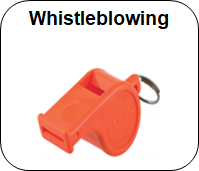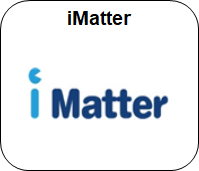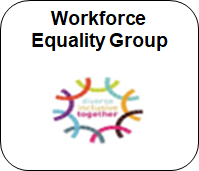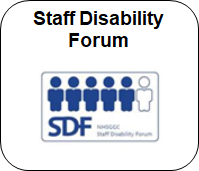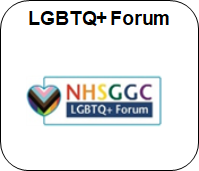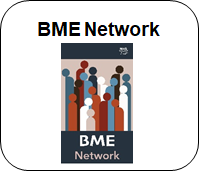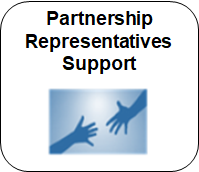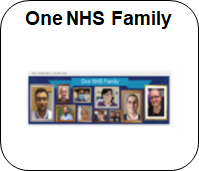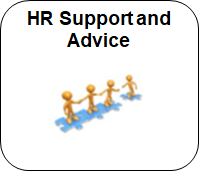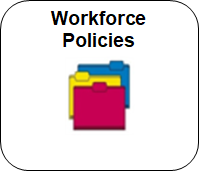We asked some of our members for their feedback on what the Staff Forum and Networks mean to them.
See some examples below to get a feel for their value and impact:
- “The LGBTQ+ Staff Forum is a collective of likeminded individuals where we can promote and campaign for equality, inclusion and awareness.”
- “I would love to see more people accessing the Staff Disability Forum for support, to contribute and above all, to make a difference. Sharing good practice is as helpful as raising concerns. You can contact in confidence, or you can join meetings and know that your voice is heard and valued.”
- “The BME Network has provided me a safe space out with my own department where I feel heard and am able to talk about issues that affect me at work. As a consequence I have felt empowered to raise concerns and begin a journey towards influencing a real change in culture within the workplace.”
- “I joined the LGBTQ+ Staff Forum as I think visibility is really important. Growing up I didn’t see gay people in everyday life. I want to make sure that doesn’t happen again.”
- “Staff who are supported and allowed to work to their strengths can achieve amazing things.”
- “The Network is a really good place to share my own experiences and hear the voices of others who share my protected characteristic.”
If you have feedback to share of your experience as a Staff Forum or Network member please contact ggc.staffexperience@ggc.scot.nhs.uk
NHSGGC has a legal responsibility as set out in The Equality Act (2010) that states we must show due regard to:
- Promotion of equality of opportunity
- Prevention of discrimination, victimisation and harassment
- Fostering of good relations
The Equality Act (2010) sets out nine protected characteristics under which protection and redress are afforded. Many of us have more than one of these protected characteristics.
- Age
- Disability
- Gender reassignment
- Marriage and Civil Partnership
- Pregnancy and Maternity
- Race
- Religion or belief
- Sex
- Sexual Orientation
The Equality Act’s revised provision includes The Fairer Scotland Duty 2018. It states that NHSGGC must pay due regard to reducing inequality of outcome caused by socio-economic disadvantage when making strategic decisions.
The pages within the “Celebrating Equality, Diversity and Inclusion” detail a broad spectrum of activity, resources and contacts. All are linked to NHSGGC’s commitment and legal responsibility as set out in The Equality Act (2010).
‘A Fairer NHS Greater Glasgow and Clyde’ explains how the organisation will uphold the law by addressing inequalities. The document also covers people’s right not to be discriminated against in the workplace. It includes the organisation’s progress on mainstreaming equality into NHSGGC and Equality Outcomes.
Additionally, NHSGGC is progressing work against the key national recommendations from the Equality and Human Rights Commission report, following the Commission’s inquiry across public sector organisations. Equality networks take forward the recommendations either nationally or locally. The Workforce Equality Action Plan aligns the recommendations against it’s five stands.
Our Workforce Equality Group is an established forum of stakeholders with appointed Executive sponsors and non-Executive Champions from across the organisation. These include Human Resources and Organisational Development, Equalities and Human Rights, Staff Side Colleagues, Corporate Communications and Equality Group, Staff Forum / Network Chairs, and our Executive Sponsor and Champions.
Our primary focus is to champion change, shape strategy and policy to ensure inclusivity for all throughout NHSGGC.
In order to do this most effectively we:
- Collaboratively develop the NHSGGC Workforce Equality Action Plan and oversee its delivery – the 2024/25 Plan can be viewed by clicking this link
- Ensure we operate in alignment with the Board’s organisational values
- Encourage a behavioural approach which promotes and embeds the principles of dignity and respect across our workforce
- Provide access to the relevant information, standards, policies, procedures and legislation to ensure equality, diversity and inclusivity throughout the organisation
- Provide governance and assurance to support, align and engage Staff Forums and Networks
Sponsors & Champions
As part of our organisational commitment to equality, diversity and inclusion, we have four appointed executive leaders. They represent our Board of Directors’ continued dedication to growing an inclusive organisation, where every employee is treated fairly and consistently, with dignity and respect.
As well as the appointed Executive sponsors and champions introduced below, every employee can be a champion of equality, diversity and inclusion by consistently displaying encouraging behaviours to ensure all interactions are in line with our organisational values.
Natalie Smith, Executive Sponsor, Interim Director of Human Resources and Organisational Development
As the Interim Director of Human and Resources and Organisational Development for NHS Greater Glasgow and Clyde, Natalie brings vision and clarity to the continuous evolution of our Workforce Equality Strategic Framework, as part of our Workforce Strategy. Natalie leads the Board’s Workforce Equality Group (WEG) which is a forum of key stakeholders who collaborate to champion change, shape strategy and policy to ensure inclusivity for all throughout NHSGGC.
“Our continued focus on Equality, Diversity and Inclusion is a critical part of our NHSGGC ‘Workforce Strategy’ aligned to our Better Workplace objectives. It is important that everyone understands the part they play in creating a culture where diversity is acknowledged and celebrated, in line with our organisational values”.
Natalie drives forward and inspires the Workforce Equality Strategy with leadership, direction and dedication, determined to continue “Growing our Great Community” where every employee is valued and respected for the unique talents they bring to NHS Greater Glasgow and Clyde.
Ketki Miles, Non-Executive Director, LGBTQ+ Diversity Champion
As a Non-Executive Director, and the Board’s LGBTQ+ Diversity Champion, Ketki brings a strategic focus and drive to NHS Greater Glasgow and Clyde’s Workforce Equality Strategy. Having worked internationally in the Financial Services industry, Ketki has experience in developing organisational cultures that embed diversity and inclusion in all aspects of their operations.
Ketki is a strong ally of the LGBTQ+ community and is honoured to be a Champion of this group. In 2022, Ketki commenced a transition plan that enables her to become the co-chair of the Staff Governance Committee, where she will oversee and seek assurance on NHSGGC’s focus across all staff matters. She also joins the Remuneration and Finance, Planning and Performance Committees, whilst remaining a member of the East Dunbartonshire Integrated Joint Board.
Mehvish Ashraf MRPharmS, Non-Executive Director, BME Champion
As a Non-Executive Director and Board’s BAME Champion, Mehvish brings a wealth of patient facing and senior management expertise from her career as a community pharmacist where she worked for an independent chain of pharmacies with sites across Scotland.
As a Muslim woman of colour, she has experienced Islamophobia and racism and is passionate about ensuring that we create a workplace that truly values diversity, creating the right culture, systems and support to enable this.
Mehvish is a member of the Staff Governance Committee, Clinical and Care Governance Committee, the East Renfrewshire Integrated Joint Board and a Trustee of the Greater Glasgow and Clyde Healthcare Charity (formerly the Endowment Fund).
Dianne Foy, Non-Executive Director, Staff Disability Forum Champion
Dianne Foy has been a non-exec member of the NHS Board since June 2022 and at the end of 2024, welcomed the opportunity to take on the role of Disability champion.
Dianne has had a strong interest in Equalities throughout her career, taking on roles as a Unison Trade Union rep and Equalities champion during her time working in the public sector. In more recent years she has retrained as a counsellor, working primarily with neurodivergent clients, many of whom also have co-occurring disabilities or chronic health conditions.
Dianne is a late diagnosed autistic person whose career change was forced by Long Covid, so equal treatment for disabled people also has personal significance.
Dianne is a member of the East Renfrewshire Integrated Joint Board, the Clinical and Care Governance Committee and the Population Health and Wellbeing committee, frequently raising issues related to disability in these meetings.
What are SVQs?
SVQs are national qualifications that recognise the workplace skills and experience staff have and provide the organisation with evidence which shows staff work to best practice National Occupational Standards. They are an assessment of competence not a training course, although training can be highlighted as a development need when assessing SVQs.
Who can do them?
NHSGGC has its own approved SVQ Centre which supports staff throughout the organisation to undertake vocational qualifications.
Priority will be given to requests from managers for staff to undertake SVQs when a service need has been identified as follows:
- Links to Service Needs, Redesign or Workforce Plans
- Identified at PDP Review
- Other e.g. (Role Development).
Why should staff do SVQs?
- They provide staff with a recognised national qualification
- They demonstrate that staff work to national standards
- They can improve confidence and performance at work
- They can provide a new insight to the job role
- They are a useful developmental tool and can provide strong evidence at KSF Review meetings
- They can provide staff with appropriate competences for future service delivery and for career progression.
What qualifications are on offer?
At present the SVQ Centre is approved to offer the following SVQs:
- Business & Administration – Level 2 – 4
- Healthcare Support (Clinical and Non Clinical) – Levels 2 – 3
- Team Leading & Management Level 2 – 5
- Learning & Development Level 3 – 4 (inc Assessor & Verifier awards)
- Social Services and Healthcare – Level 2 – 3.
Are there any exams?
No. Staff are assessed at their workplace using a variety of methods e.g. observation, reflection, professional discussion, current work products and questioning to underpin knowledge and understanding. They will be assessed on the skills they use every day in their job.
Don’t worry if staff have never studied for anything before or have difficulty writing reports etc. We will help them gather the evidence they need in different ways and can discuss providing support prior to starting a vocational qualification, which can tackle lack of confidence and other concerns which staff and managers may identify.
Who assesses staff?
Staff will generally be assessed by either a peripatetic assessor attached to the SVQ central team, a workplace assessor linked to their local area, an assessor from another workplace or from an outside training provider. There may be development opportunities for staff to train as workplace assessors in some areas.
How long will it take?
Time to complete a qualification is flexible. Everyone works through SVQs at a different pace. However we would expect candidates to finish within 9 -12 months depending on the award and level of qualification being undertaken.
What support is available?
An assessor and internal verifier will both be available for support.
The SVQ Team can be contacted directly for information, advice or guidance in relation to SVQs.
In discussion with managers, staff require support with allocation of time to carry out SVQ assignments and assessments. Underpinning Knowledge and Understanding is an important part of any qualification and links will be made with the relevant education staff to offer support to candidates.
How much does it cost?
The NHSGGC SVQ Centre has limited capacity to assess a small number of qualifications annually which would be corporately funded. Other delivery options are available. Contact the Qualifications Team to discuss funding implications.
I’m interested, what do I do now?
As a manager
Contact us to discuss which SVQs may be appropriate for your staff and any funding implications. A service level agreement may require to be set up.
As a prospective candidate
Contact us for an application form and to discuss which SVQs may be appropriate for you. If undertaking the SVQ is not already highlighted on your PDP, please speak to your manager as you need their support before applying.
Want to know more?
For further information on any SVQ programme please contact: LE.Support@ggc.scot.nhs.uk.
The TURAS Learn platform has a range of resources available. These are designed as easy to use reference guides to KSF and the PDP & Review process.
Two key video resources from this are below. One is for staff on what to expect and how to prepare for annual review meeting and the other one for reviewers on how to prepare for and conduct a review meeting.
PDPR Reviewer Video
PDPR Reviewee Video
The KSF Personal Development Planning and Review Process is an integral part of the wide range of organisational and operational support mechanisms in place for staff throughout their career with NHSGGC.
Induction
On commencing with NHSGGC, when changing roles or when returning from an extended period of absence, staff should receive an effective induction to support them in their role. This will enable a Personal Development Plan to be developed to support their initial learning and application in practice and it forms a foundation for the ongoing KSF Personal Development Planning and Review process. Induction Portal
Staff Support and Wellbeing
The KSF PDP & Review discussions can also link to the ongoing wellbeing discussions with staff. These well-being check-in’s often focus on how things are going (what is going well/what is been difficult and any supports required moving forward) and as such clearly fit in with the 3 key discussion questions that should frame the KSF PDP & Review. See the Staff Support and Wellbeing pages on HRConnect for further info on staff supports.
Career Development
The ongoing KSF PDP & Review discussions can also be an opportunity to discuss staffs wider career development and to include planning around this. The Career and Development Planning Framework pages are designed to offer a wide range of information to help plan development activities for staffs current post and prepare for future roles as part of a career pathway.
Learning, Education and Training Service
The Learning, Education and Training Service offers a range of development opportunities for all staff from entry into post and throughout the span of their career. From formal qualifications to learning pathways, we will provide you with practical solutions tailored to your needs. This might be by gaining a work based qualification, attending a classroom session (where appropriate) or via digital learning.
The Learning, Education and Training Catalogue outlines information on the wide range of tutor led and e-Learning courses that are available. Access to digital learning is flexible and resources can be accessed from mobile devices, work or home PCs at any time. You can also get support for learning through the NHSGGC Staff Bursary Scheme.
Organisational Development
The Organisational Development Pages also provide information on a range of interventions tools and resources to support ongoing development and learning including leadership development.
Professional Development
Individual professions will also have a range of resources available to support staffs ongoing professional learning and development.
Core Skills Training gives NHSGGC staff the chance to brush up on core writing, reading, number and computing skills used every day. The service is free and confidential. You can get help one-to-one or in a group. You may be referred by your line manager.
Benefits of workplace learning; everyone benefits from more confident and capable staff!
- Improves staff performance, morale, adjustment to change and redeployment
- Everyone has access to a PDP. Staff are more motivated, confident, more capable
- The NHS is more productive, more efficient, less wasteful and safer due to more accurate communication, paperwork, calculations
- Quality assurance and performance, improved client relations, staff retention
NHSGGC Core Skills Support – Numeracy and Literacy
Examples of skills staff have chosen to work on:
Reading:
- Notes, letters, forms, memos, emails, newspaper and magazine articles, books
- Work instructions, policies, invoices and orders, job training information
- Payslip, timesheets, rotas, charts, tables, directions and timetables
Spelling and Writing
- Writing notes, letters, emails, spelling, punctuation, grammar, using tenses
- Taking phone messages, organising your ideas, proof reading, filling in forms, charts, rotas, timesheets
- Accident reports, updating files & records, support workers competency portfolio
Numbers and Calculations
- IV drug calculations, clinical and non-clinical calculations
- + ÷ − x % decimal points, fractions
- Understanding and checking your payslip
- Using the 12 and 24 hour clocks, calculating time
- Measuring, filling in charts and tables
- Money; paying by cash and checking your change
- Understanding and paying bills, writing cheques
- Understanding timetables for public transport and planning journeys
- Fluid balance charts, height and weight conversions
- Unit conversions (g to mg)
Need more info or want to get started? Contact: Library.Network@ggc.scot.nhs.uk
NHSGGC Core Skills Support – Digital Literacy
Computing and the Internet, The Basics
Apart from the bespoke sessions with staff, working on general writing, reading and number skills, Core Skills training supports staff who need help to complete NHS training and study programmes, staff who have been redeployed and staff who are struggling to cope with dyslexia. We have helped Support staff with the written work required for their competency portfolio, working with them to improve spelling and grammar, essay writing and basic computing skills. Core Skills tutors also work alongside clinical staff who run the IV Therapy Education Programme. We help nurses to feel confident about calculations and number work before they sit the formal IV calculations assessment.
We have successfully trained staff in the basics of using a computer and the Internet; skills which have given staff the confidence to go on and tackle other NHS study programmes and on a day-to-day basis have helped staff become more effective at work, at home and in the community.
Need more info or want to get started?
Contact: Library.Network@ggc.scot.nhs.uk
NHSGGC has a commitment to equality, diversity and inclusion and we are continuously working towards building a Better Workplace. The One NHS Family campaign raises awareness of our commitment to acknowledging, supporting and celebrating our diverse workforce.
COVID-19 highlighted the many health and wider inequalities in our society. It became increasingly clear that COVID-19 had a disproportionate impact on many who already face disadvantage. The One NHS Family campaign took coordinated action to support those at risk across our organisation.
We continue to work together to make sure we value and respect colleagues for who they are, and for the unique part they play in our organisation. We are working to embed a ‘zero tolerance’ response to behaviour that contradicts our organisational commitments to equality, diversity and inclusion.
Practical support and activity provided by One NHS Family includes promoting and supporting NHSGGC’s Staff Forums / Network, offering peer support, employee training opportunities and pioneering career development programmes.
NHSGGC is committed to Equality, Diversity and Inclusion. Everyone has a part to play in supporting our culture, acknowledging equality, diversity and inclusion, and building a Fairer Workplace for all.
Our diverse staff group brings a richness of perspectives. It is critical that we treat everyone working for NHSGGC fairly and consistently, with dignity and respect. We will be better supporting our diverse patient community in an environment where diversity valued.
NHSGGC can only be truly inclusive if every single one of us commits and contributes.
Equality, Diversity and Inclusion Learning Event 2024 and 2023 Webinar Series
To read more about our first Equality, Diversity and Inclusion Learning Event and our webinar series, please click this link.
Key Stakeholder Groups
To continue to drive Equality, Diversity and Inclusion forward at an organisational level, five key stakeholder groups contribute to the delivery of Equality and Diversity activity:
You can find information on these groups by clicking the buttons below.
Organisational Values supporting Equality, Diversity and Inclusion
We encourage every employee to embrace our organisational values of Care and Compassion; Dignity & Respect, Openness and Transparency and Quality & Teamwork. By embracing our values, we continue Growing our Great Community, where everybody feels supported, valued and part of NHSGGC.
The Equality Act 2010 offers protection towards groups with ‘Protected Characteristics’. The Act explains the nine protected characteristics.
As part of our ongoing committment to Building a Better Workplace and Growing our Great Community, we have a range of commitments and activities currently underway as you will see described below.
Reasonable Adjustment Guidance
More recently, we have launched the new Reasonable Adjustment Guidance to support employees with a disability, health condition or diversity in the workplace, so they can be supported to have a great experience at work.
Equality, Diversity and Inclusion Calendar
The 2025 calendar was developed as a resource for staff to demonstrate a visible and supportive role which is committed to respecting and celebrating diverse communities, cultures and faiths. The calendar provides details of the main religious festivals, major national and international days of celebration or memorial which reflect the diverse population of our staff and community.
We focus on the six major world faiths – Buddhism, Christianity, Hinduism, Islam, Judaism, and Sikhism. This does not mean we do not recognise that there are many more faiths equally as important. We also recognise that a large proportion of our NHSGGC community may have no religion or belief.
Did you know you can easily add key events and religious holidays from around the world to your Outlook calendar?
Here’s how:
1. Open your Outlook calendar.
2. Click on “My Calendars” on the left-hand side.
3. Select “Add Calendar” and choose “From Country.”
4. In the search bar, find the country where the event or holiday is widely observed.
5. Select the calendar you wish to add and click “OK.”
Now, you’ll see important dates automatically added to your calendar, helping you be more mindful of diverse cultures.
By embracing these small steps, we can build a more inclusive and respectful work environment for everyone.
If you would like to find out more about dates and events included within this calendar, NHSGGC libraries have a range of books containing relevant information. This resource list will be updated throughout the year.

